25 Nurse Tools to Help You on the Job

Many of the nursing tools you use are unique to your specialty or to a patient’s individual situation. Nurses in long-term care won’t be working with the same equipment as nurses in emergency departments. Nurses working with a COVID-positive patient will need personal protective equipment (PPE), unlike nurses helping a patient hospitalized for a broken bone. Regardless of the situation, there are some nurse tools that are useful no matter where you work during your nursing career.
As a nursing professional, your duties are varied, and your attention may need to turn on a dime in an emergency. You may not have thought much about the shoes on your feet or the pen light you’re using to examine someone or the gloves on your hands as you treat a patient in need, but these and other nursing supplies allow you to perform your job properly and make it possible for you to provide the best level of care to patients.
During the COVID-19 pandemic, the general public found out just how essential certain tools and equipment are to a nurse’s job. When people began hoarding and panic buying personal protective equipment like medical masks and gloves, it caused a shortage. Medical professionals didn’t have adequate supplies on hand to protect themselves as they cared for patients.
The situation became so dire that the World Health Organization called on the industry and governments to increase the manufacturing of these and other items by 40%. There could be no doubt that certain tools used by nurses and other healthcare workers play a critical role in protecting and saving lives.
Self-Care Supplies for Nurses
It’s important for nurses to care for themselves not only because it’s necessary for their wellbeing, but also because they can more effectively care for others when they feel safe and comfortable. One simple way to care for yourself is to wear scrubs you love. In addition, here are some examples of nurse tools for self-care.
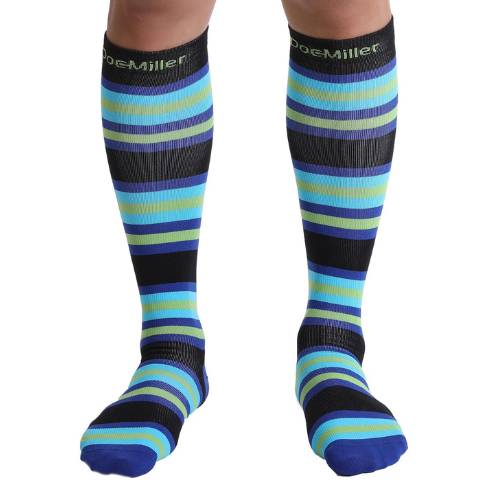
Compression socks: Nurses who spend most of their time on their feet are at increased risk of developing leg pain, swelling, and varicose veins. Wearing high-quality compression socks or stockings adds pressure to the lower legs, minimizing the chances of complications.
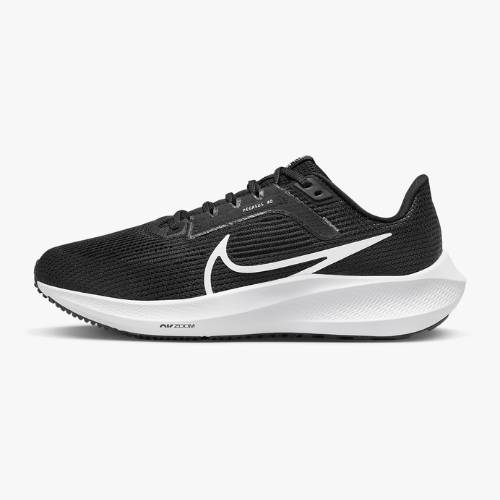
Comfortable footwear: A good pair of shoes can take you a long way, literally and figuratively speaking. Look for shoes that have ample cushioning and ankle support, since nurses are on their feet all day. Wearing comfortable and supportive shoes can also protect you from future pain and discomfort.
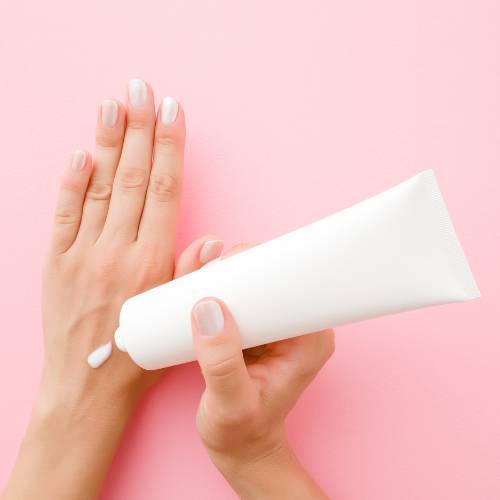
Hand lotion: Nursing involves a lot of handwashing to protect yourselves and your patients from various infections. An unpleasant side effect is dry, cracked skin. Not only is that not good for your skin health, but the tiny cuts resulting from dry hands could be entryways for pathogens.
Water and snacks: Nursing requires a lot of energy, which is why it’s important to replenish your body with fuel so you can continue without the uncomfortable effects of dehydration or low blood sugar. You might want to choose snacks that don’t require refrigeration.
Pain relievers: Address your own aches and pains so that you can feel comfortable and remain focused. Don’t assume you can rely on your workplace for over-the-counter pain medicine. They might not allow you to use their supply, or not have your personal preference readily available.
N95 or KN95 mask: Facilities should provide these masks, but sometimes they don’t allow employees to use their supply unless patients have confirmed cases of certain illnesses. Ensure you’re protected if you feel the need to wear one.
Adhesive bandages: When addressing minor cuts and scrapes, sometimes it’s easier to use your own supply than search for what’s in stock.
Knee brace or ankle brace: Nurses who suffer from joint pains would benefit from the extra support provided by knee and ankle braces to prevent discomfort or injury.
Nurse Tools for Patient Care
Now that you’ve taken care of your own needs on the job, let’s explore nursing accessories and equipment that should always be on hand for patient care.
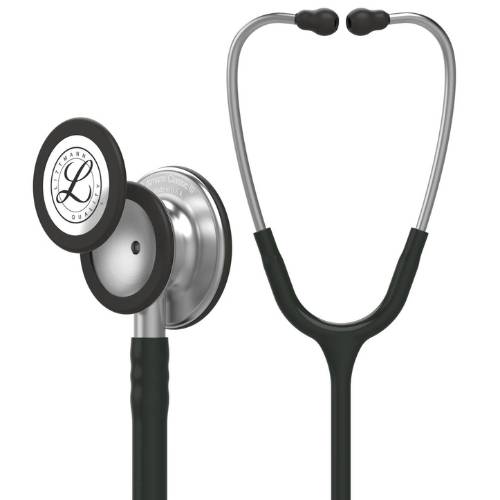
Stethoscope: This is an essential tool for assessments such as blood pressure and lung sounds. You never know when you’ll need a quality stethoscope.
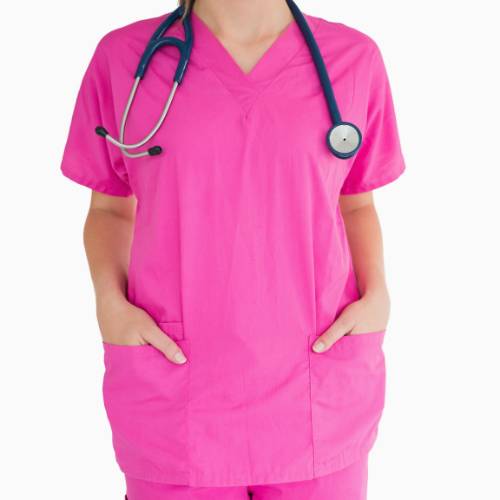
Scrubs: Sometimes companies require nurses to buy scrubs specific to them, sometimes not. Make sure you buy a few sets so that you’re always prepared, and in case a set is ruined.
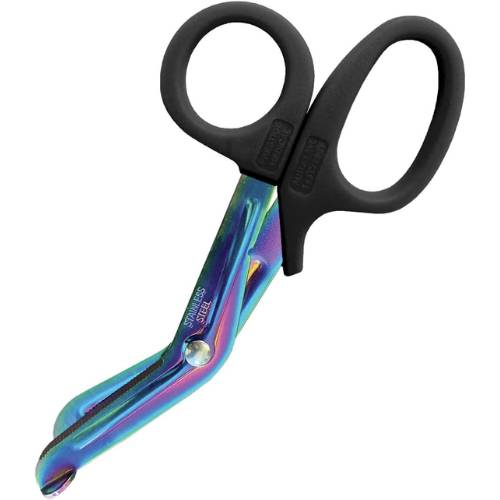
Scissors: These are often useful for trimming certain bandages (especially if you work as a wound care nurse), as well as for a variety of random tasks. You can save yourself time searching for a free pair when you have your own.
Pens: Hold on to your pens! Sometimes they can be hard to find when you need them. Instead of pens with caps that can get lost, reach for retractable pens.
Phone: You’ll likely have this on you whether or not you’re working. It’s helpful for multiple tasks such as making calculations, using the flashlight to assess patients, and researching questions about anything that may come up. Don’t forget a charger cable.
Hemostat: This tool acts like a clamp and resembles a pair of scissors. It’s not something you want to be scrambling to find when you need it.
Hand sanitizer: This should be readily available, but it can’t hurt to have your own for convenience.
Gloves: It’s wise to always have a pair of latex gloves in your pocket. You never know when you’ll need them quickly.
Sphygmomanometer (aka Blood Pressure Monitor): This isn’t a tool you’ll be carrying on your person, but it’s one that you’ll use frequently to determine a patient’s systolic pressure and diastolic pressure.
Optional Nurse Tools
If your employer allows them, smartphones have the capacity to serve the purpose of some of the tools listed. The others are a matter of personal preference.
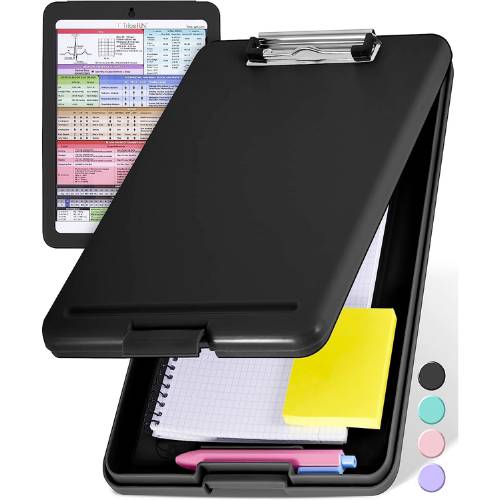
Clipboard: You’ll likely be writing down notes often, especially when you’re at a new facility. A sturdy clipboard can make this much easier when you’re at the bedside or walking from one room to another. There are a handful of foldable clipboard options that can fit in a pocket of your scrubs, making this tool more convenient than in the past.
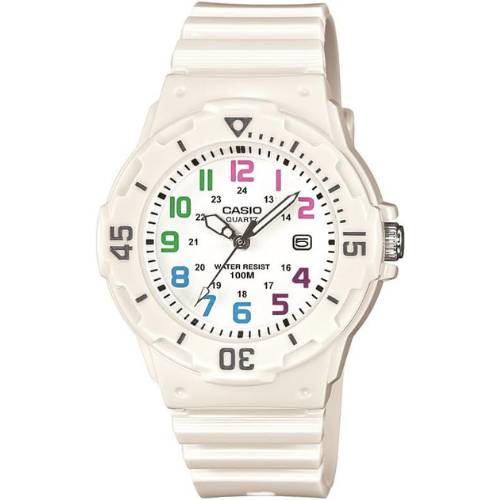
Watch: If you wish to minimize the number of times you use your phone, or if your employer forbids phone use, a watch is an easy way to tell time and complete vitals requiring it.
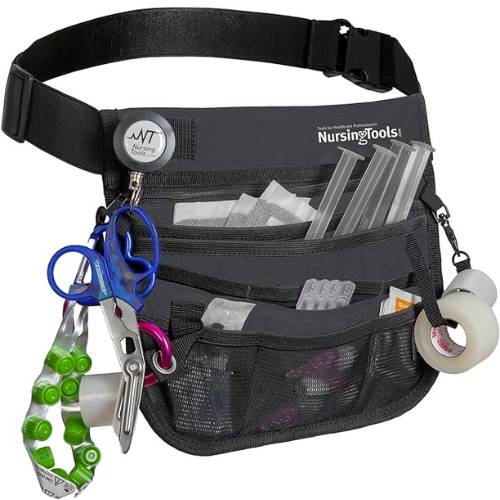
Separate bag for nursing tools: Most of your tools should be able to fit in your backpack or purse, but a separate nursing bag can’t hurt if you want to feel more organized.
Penlight: If you can’t use your phone light for examinations, pen lights are effective options that are easy to store.
Notepad: This is especially useful for new nurses or seasoned nurses starting a new job. Pocket size notepads are convenient ways to jot down and readily access new information.
Drug reference book: Handy if you’re not allowed to search questions by phone, or if you simply prefer seeking information the old school way. Just make sure it’s up to date.
Pocket reminder charts: These laminated cards (usually slightly larger than an ID card) are excellent on-the-go references with information about orders of labs drawn, lab values, IV fluids, heart rhythms, and more. As with any reference material, make sure the charts are up to date.
Detachable lanyards: If you’re the kind of person who is prone to misplacing things, lanyards can be super-useful. Clip them onto a pen, your phone, a small bottle of hand sanitizer, your ID card… The list is long. Lanyards can save you from wondering, “Where did I leave my…?” a dozen times in a day.
Gather Your Nurse Tools and Get Started
You’re prepared for success, so what’s next? Finding a job that complements your skills. Learn how IntelyCare can pair you with the latest nursing jobs that match your expertise and location.

